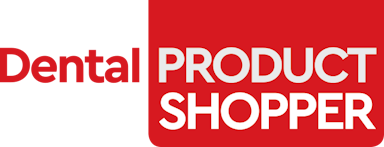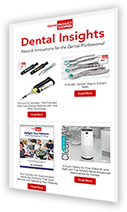 The ticking time bomb is a good analogy for outdated hardware in your dental practice. Think of it this way: If you were aware that a ticking time bomb was underneath your floorboards, you would do everything in your power to stop it, including calling the professionals who can disarm it. While out-of-date hardware does not endanger lives, it does endanger the lifeblood of your business. By ignoring outdated hardware, you could be putting everything you have worked so hard to build at risk.
The ticking time bomb is a good analogy for outdated hardware in your dental practice. Think of it this way: If you were aware that a ticking time bomb was underneath your floorboards, you would do everything in your power to stop it, including calling the professionals who can disarm it. While out-of-date hardware does not endanger lives, it does endanger the lifeblood of your business. By ignoring outdated hardware, you could be putting everything you have worked so hard to build at risk.
In this article, I’ll answer some of the frequently asked questions about the risks of outdated hardware and what can be done to remediate them.
What is the risk of not updating my hardware?
If your hardware is out of warranty, you’re exposing your patients and practice to an increased potential risk of data loss through hardware failure. Without a comprehensive backup strategy, you have a higher risk of losing all of your practice data, including patient records, financial and accounting information, and payroll.
Older hardware might not support the latest software security updates or a manufacturer may discontinue support. Older operating systems have increased security risks because they’ve been on the market longer giving hackers more time to find and exploit vulnerabilities. That’s why it’s important to download security update and patches regularly—and to make sure you have the hardware that supports them.
What’s the monetary risk of not protecting my practice data?
You can quantify this by considering how much it will cost your practice to shut down for a day or a week. Also factor in fines, fees, and financial ramifications from a damaged reputation that could result if your patient data is compromised. Having a trusted IT provider that knows security and can help protect your practice could definitely save you money in the long run.
How do I know if my practice has outdated hardware?
Even if your server seems fine right now, many dental practices use incorrect/improper or insufficient technology, including consumer-grade PCs with short warranties, workstation servers that are inadequate for business use, basic routers without acceptable security, and multiple daisy-chained network switches.
A technology assessment is the simplest way to take a tech inventory and properly assess your network. This can help identify your business’s weak areas, so you can get the equipment that fits the current and future needs of your practice. A proper assessment will include a thorough evaluation of networks, servers, routers, and switches; backup and recovery systems; security threat protection; clinical business computers; and wireless/Wi-Fi security.
How often should my practice upgrade IT hardware?
Many IT experts advise that network hardware components typically need to be replaced every 3 to 5 years. Unfortunately, it’s not as easy as unpacking a new hardware component and plugging it in. A digital dental practice has several components, including hardware and software applications that must work in harmony to support the work of dentists.
 With practice needs in mind, TechCentral, by Henry Schein One, developed OmniCore, a “hardware-as-a-service” offering that provides an all-in-one dental office in a box. Rather than incurring the cost to purchase and support networking hardware, customers pay a monthly subscription fee for TechCentral to provide, maintain, and monitor all of the hardware.
With practice needs in mind, TechCentral, by Henry Schein One, developed OmniCore, a “hardware-as-a-service” offering that provides an all-in-one dental office in a box. Rather than incurring the cost to purchase and support networking hardware, customers pay a monthly subscription fee for TechCentral to provide, maintain, and monitor all of the hardware.
When equipment belongs to your practice, you’re stuck with the cost of replacement when it fails. OmniCore helps to eliminate that frustration because if there’s a problem with the dental network, the repair or replacement is already covered by the monthly fee. It’s a set-and-forget solution that eliminates worries about networks not working, when to replace or update components, or how to budget for IT surprises. That’s a significant value when compared to the headaches of purchasing and replacing hardware and services a la carte.
Should I rely on an IT provider and why?
As a busy dentist, you are seeing patients with dental emergencies every day, and your time is better spent delivering care than troubleshooting your IT. This is where it can be particularly helpful to have a trusted IT partner who knows IT solutions in the dental industry.
Why not call a local IT company (or your nephew) to fix my problems?
 The team at TechCentral has been working with dental and healthcare networks of all sizes for more than 20 years. When it comes to having a failed network, you don’t want someone who has to “figure it out.” While a local IT company (or your nephew) may know computers, they may not know the unique challenges of a dental practice network. You want someone who knows how each piece of your network interacts with your dental-specific tools, such as your imaging equipment.
The team at TechCentral has been working with dental and healthcare networks of all sizes for more than 20 years. When it comes to having a failed network, you don’t want someone who has to “figure it out.” While a local IT company (or your nephew) may know computers, they may not know the unique challenges of a dental practice network. You want someone who knows how each piece of your network interacts with your dental-specific tools, such as your imaging equipment.
With OmniCore, TechCentral has chosen high-quality, business-grade equipment that’s in stock for quick service and turnaround. Many smaller IT companies can’t afford to incur the financial responsibility of backing up your equipment on such a robust platform, and they may not have dental-specific experience.
TechCentral can monitor your data backup and notify you in case of any issues. TechCentral reports that over 90% of calls to their support center are resolved remotely, minimizing expensive downtime for practices.
I’m ready to partner with a trusted IT provider to make sure I have the right hardware and IT solutions. What’s the next step?
Start by scheduling a free technology assessment at https://www.hs1techcentral.com/Assessment. TechCentral will help you fortify the security of your data with the right equipment that also fits the needs of your dental office.
This article is paid for by TechCentral. Certain components of the products or services described above are provided by third parties. Henry Schein One and its affiliates are not responsible for, and expressly disclaim, all liability for damages of any kind arising out of the use of those third-party products or services.



